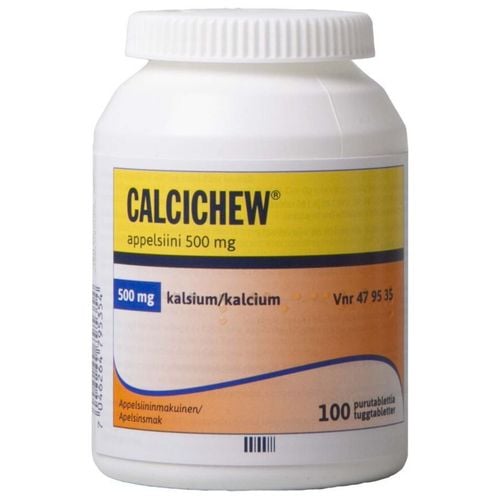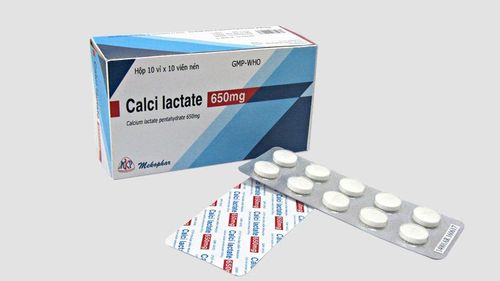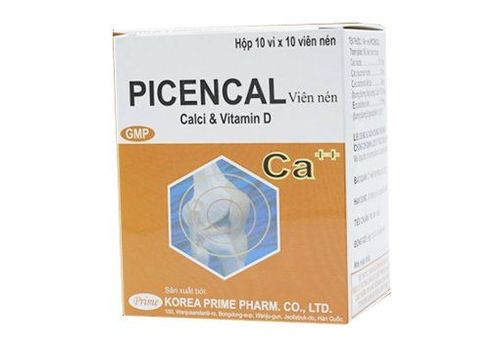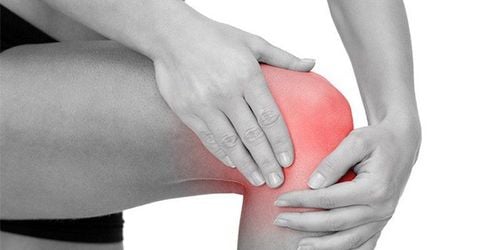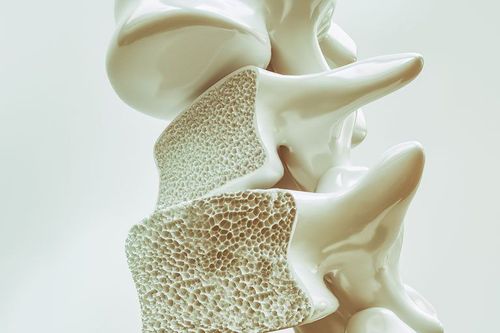This is an automatically translated article.
Liquical is an over-the-counter drug used for the purpose of calcium and vitamin D supplementation in patients with osteoporosis, fractures that take a long time to recover, children with rickets, pregnant and lactating women. . Learn more about this drug, you will know how to use it most effectively and safely.
1. What is Liquica?
Liquica contains 2 main ingredients: Vitamin D3 and Calcium carbonate. In particular, vitamin D3 accounts for a high content in the drug, this is an extremely important component in the process of bone formation thanks to its effect on the metabolism of inorganic substances, notably calcium and phosphate. Therefore, this ingredient brings many benefits to the development of young children.
In addition, vitamin D3 also helps regulate calcium levels in the blood so that this index is always stable. Vitamin D3 also participates in the process of epithelial cell differentiation with the effect of inhibiting the proliferation of epithelial cells and melanin-secreting glands, breast cancer ...
When the body lacks vitamin D3, the intestines do not absorb enough Calcium and phosphorus lead to a decrease in blood calcium. In this case, calcium will be mobilized from the bones to stabilize blood calcium levels and cause children to grow back, rickets, bow legs, slow fontanelle and walk. For adults, the common problems with osteoporosis, spongy bones, thin and fragile bones.
Another ingredient in Liquica is Calcium Carbonate. This is also an ingredient in the group of minerals and vitamins, plays a role in providing calcium carbonate for the body, contributing to the improvement of certain diseases.
2. Indications and contraindications of the drug Liquica
2.1. Indications Liquica Liquica is indicated in the following cases:
Support for prevention and treatment of osteoporosis in people at high risk. Treatment of common bone-related diseases including osteoporosis, rickets, osteomalacia, acute and chronic bone loss, Scheuermann's disease. Provide calcium and vitamin D3 for the body to ensure the development of bones and teeth during childhood and puberty. Liquica is suitable for use in cases of increased calcium requirements, including pregnant women and nursing mothers. Liquica also helps with calcium supplement therapy for patients on hemodialysis. 2.2. Contraindications Liquica Liquica is not suitable for patients with hypersensitivity to any component of the drug, people with severe renal failure, severe urinary calcium, calcium stones.
3. Dosage and how to use Liquica
Liquica is used for adults and children depending on the need to provide calcium daily with a dose of 1-2 tablets / day, drink with 1 glass of water after eating.
4. Liquica drug side effects
Liquica has little risk of side effects for users. However, some cases of drug abuse can cause hypercalcemia, hypercalcemia, hypercalciuria, bone and joint pain, kidney stones, and high blood pressure.
Some people will have a feeling of weakness, fatigue, headache, vomiting, diarrhea, brittle bones... after taking Liquica.
5. Drug interactions
Liquica should not be used at the same time as cholestyramine or colestipol hydrochloride, which can reduce the absorption of vitamin D3 in the intestine. Co-administration of Liquica with thiazide diuretics may lead to hypercalcemia. Concomitant use of Liquica with drugs containing Phenobarbital and/or Phenytoin is not recommended, as these drugs may reduce plasma concentrations of 25-hydrogen ergocalciferol and 25-hydroxy- cholecalciferol as well as reduce the effectiveness of vitamin D3. The drug should not be used at the same time as corticosteroids because it will interfere with the effect of vitamin D3. Liquica, if used with cardiac glycosides, can cause cardiac arrhythmias.
6. Be careful when using Liquica
Using Liquica in high doses can cause hypercalcemia, increase muscle mass, cause kidney stones, kidney failure. In the case of patients with prolonged hypercalcaemia, it may cause calcification of soft tissues, and permanent irreversible renal insufficiency. Long-term and high doses of Liquica can also cause vitamin D accumulation, increase blood calcium, fatigue, loss of appetite, increased urination. For patients with mild hypercalciuria, chronic renal failure or symptoms of calcium accumulation in the kidneys, at this time the patient should be monitored for urinary calcium levels. Above is information about uses, dosage and precautions when using Liquica. To ensure safety for your health and maximize the effectiveness of your treatment, you need to take Liquica exactly as directed by your doctor.
Please dial HOTLINE for more information or register for an appointment HERE. Download MyVinmec app to make appointments faster and to manage your bookings easily.




